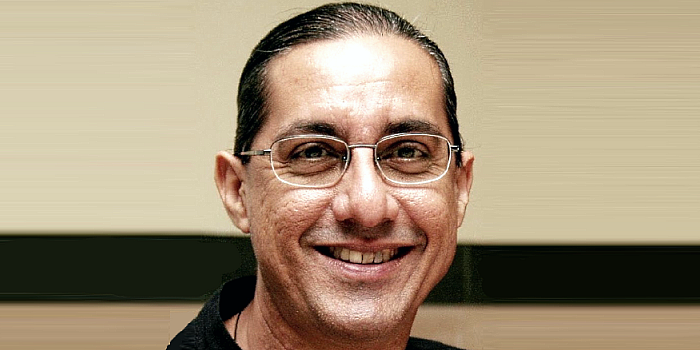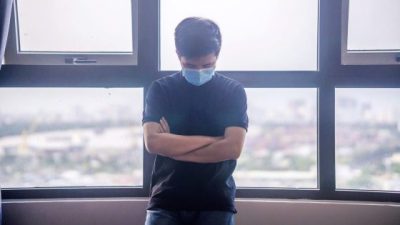
After more than two years of Covid-19 pandemic, the world and Malaysians are fatigued.
We want the pandemic to end and for all of us to ‘get on with our lives’. But is the end in sight? Just wishing for it to happen will not make it so.
Fortunately, vaccines have significantly improved outcomes but this is only a limited success and we will have to contend with future variants.
We want to restore our jobs and economy, get our children back to school and allow our health services to focus back on the many health needs.
But to make these important changes we must not lose sight of the threat that Covid-19 still poses to the community and keep in place vital measures.
What Endemic is NOT
The constant talk about ‘endemic’ has sadly begun to lull many in the world and Malaysia into complacency.
As experts from the World Health Organisation (WHO) clearly express, endemic is NOT the same as good or better and that endemic does NOT imply mild or milder.
Dr Maria Van Kerkhove, an infectious disease epidemiologist and technical lead for the WHO, said in February 2022: “The next variant of concern will most likely be more transmissible as compared to Omicron because it will have to overtake the strains that are currently circulating. Future variants may also have a greater ability for immune escape (vaccines will not be as effective against them).”
It is extremely difficult to predict what will happen in the immediate future as it is dependent on many factors which include new vaccine-resistant variants of concern emerging, waning immunity from current vaccinations, better vaccines, new therapeutics, what level of burden of disease and disruption to our healthcare capacity are we willing to accept and what long-term meaningful social behavior and change the public will make.
The reality about Covid-19 is that it is here to stay for a long time and it will continue to impact the society in various ways.
We must appreciate the full impact of Covid-19
As we discuss a move to a more ‘open’ and ‘relaxed’ stance, we must remember that there are three main effects of a Covid-19 infection.
Firstly, the immediate hospital admission, organ damage and death risk are dramatically reduced by vaccination. However, from good data locally and overseas, we know that the elderly and vulnerable (those with chronic diseases, are immuno-compromised or disabled) still have a significant risk of hospitalization and severe illness if they do not have a booster.
In addition, not all vaccines are the same.
A recent study from Hong Kong (released March 2022) showed that the two-dose vaccine effectiveness against severe disease and death for Pfizer was 88.2% (95% CI 84.4%, 91.1%) and for Sinovac 74.1% (95% CI 67.8%, 79.2%). This means that there would be 12-17% less deaths if two doses of Pfizer were used compared to two doses of Sinovac in those aged over 60 years.
Third dose protection (booster) for both vaccines was good at 98.1% (95% CI: 97.1%, 98.8%).
Hence it is worrying to see booster rates of only 61 to 72% among those aged 60 years and older, especially if they used Sinovac as their primary vaccination.
Remember that young adults with comorbidities or disabilities also need boosters.
Secondly, the intermediate risk of Long Covid that may affect even those who have a mild infection. Adult Long Covid rates are in the region of 20-30%.
Data from the UK Office for National Statistics on Long Covid in children showed that 1.0% of all primary school and 2.7% of secondary school students in the UK have experienced Long Covid; lasting one year in 15%.
Recent data pooled from 21 studies in Europe, Asia, Australia and South America showed that up to 25% of children infected developed Long Covid.
Hence, our poor vaccination of children aged 5-11 years (37% first dose rates) is of serious concern.
Vaccination reduces Long Covid risk by up to 50%. But note that you still have a 9.5%-14% risk of Long Covid if you have a breakthrough infection after two-dose vaccination and this should be a good reason to take precautions to avoid getting infected.
Thirdly, the still poorly understood long-term effects of Covid-19 on the brain and other organs (heart, lungs, endocrine organs, etc.) which may lead to chronic ill health or even disability years from now.
Preliminary studies suggest that these long-term effects of Covid-19 do not always appear to be related to the severity of the infection you suffer and can occur even in those who have an asymptomatic infection.
We must count the cost of the long term disability risk of this pandemic.
In addition, we have a mental health pandemic that has risen in tandem with the Covid-19 pandemic.
Vital measures we need as a society in coming months
As a society we need to make significant long-term changes — a new way of life now and post-Covid that will enable us to live better, deal with the potential new challenges Covid-19 throws at us and as well as face the next pandemic that will come.
We may be making a move to an ‘endemic Covid-19’ state, but the virus may not have got the memo.
This is a summary of the bare essentials:
1. Get your boosters yesterday
Those aged 60 years and older and young adults with comorbidities, disabilities or are immuno-compromised need boosters before the next wave (possibly a BA.2 wave in April 2022).
2. Vaccinate your young children now
Note that 63 childhood deaths due to Covid-19 occurred in the past 24 weeks; two thirds in the past three months and mostly in children under 12 years.
Please vaccinate all our 5- to 11-year-olds before they get infected. We hope to have the data that supports vaccination of the youngest children soon.
3. Use a good mask always
We must improve the mask quality in our community.
Good cloth and surgical masks are only 60-75% effective. We need to use FFP2/KF94 masks.
Make sure they are reliable because many masks sold online may be fake.
These masks have a better fit and filtration and are especially useful indoors.
4. We have failed to capitalize on improving indoor ventilation
It is sad that despite the good data, we have yet to have mandatory changes to optimize ventilation in all buildings and rooms.
Suggestions will be not be enough – we need mandated changes that include monitoring. Only then can we keep our children in schools and our office staff safer.
5. Not all outdoors are the same
While some nations have removed mask mandates outdoors, we must remember that not all outdoor locations are the same.
A crowded pasar malam, Ramadan bazaar or outdoor shopping area are far riskier than a jog in the neighborhood or a walk in an urban park.
Keep your mask on when in crowded locations with limited spacing and prolonged exposure.
6. Support employees
We need to change our work ethic/behavior to allow routine work from home, offer routine paid leave for unwell staff and move more meetings and conferences to online platforms.
7. Time to end fake news pandemic and ‘Covid wars’
Currently, measures to fight Covid-19 are hampered by a continued fake news pandemic. We must work collectively to stop this.
In addition, we have what I term ‘Covid wars’ among medical personnel.
We need to always be data- and science-based and present the full picture to minimize confusion among the public.
8. Invest in our healthcare system
Our national healthcare system has been deteriorating. We have failed to deal with social determinants of health, grossly under-spent on healthcare, not supported health staffing adequately, and focused too much on curative medicine and hospitals while neglecting prevention and public health.
We must reverse these trends to make our national health system more robust to deal with pandemics like Covid-19.
We may be making a move to an ‘endemic Covid-19’ state, but the virus may not have got the memo.
Experience from many nations, with good vaccination rates, that have lifted restrictions, has shown us how fragile we still are in the face of this virus.
The Covid-19 virus and new variants will exploit any and all weaknesses in our response. Continued vigilance is required both by the authorities as well as the public. We will only succeed together.
(Dato’ Dr Amar-Singh HSS is Consultant Pediatrician.)
ADVERTISEMENT
ADVERTISEMENT








































